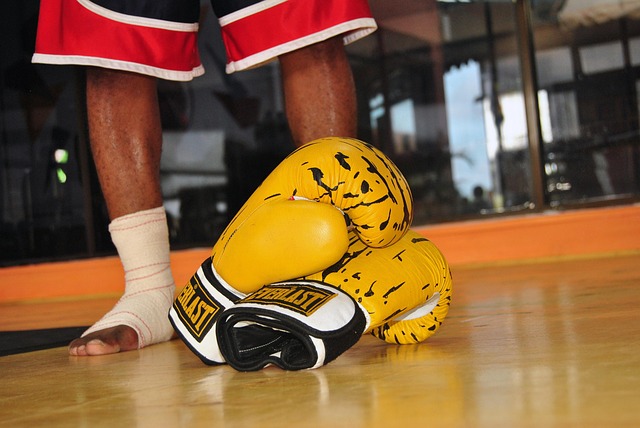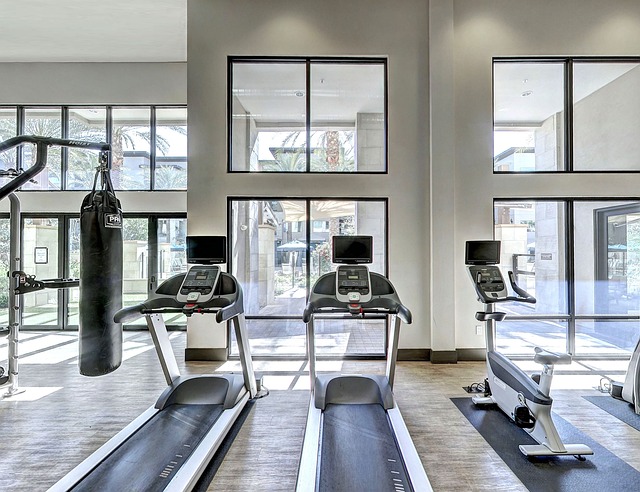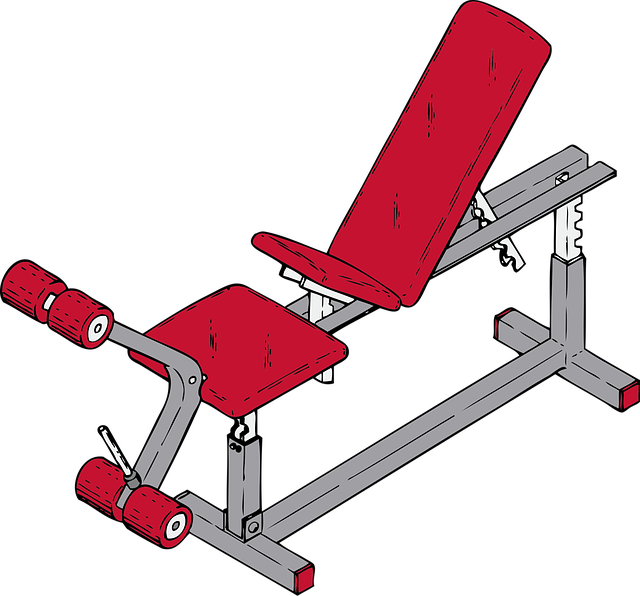In a competitive market, leading brands like Life Fitness, Technogym, and Horizon Fitness dominate residential gym equipment, offering commercial-grade machines, advanced tech, and diverse options for all fitness levels at home. Consumer trends drive demand for space-efficient, versatile, high-quality gear with innovative design, durability, and enhanced user experiences.
In today’s health-conscious world, setting up a home gym has become increasingly popular. This trend has led to a booming market for residential gym equipment, with numerous brands vying for top spots. This article explores the most popular residential gym equipment brands dominating the market, delving into their key features and consumer preferences driving their success. We’ll also highlight popular choices for full-home gym equipments, providing insights that can guide your fitness journey.
- Top Residential Gym Equipment Brands Dominating the Market
- Key Features That Define Leading Home Fitness Brands
- Popular Choices for Full-Home Gym Equipments
- Consumer Preferences and Trends Shaping Brand Success in Residential Gyms
Top Residential Gym Equipment Brands Dominating the Market

In the competitive world of fitness, having quality residential gym equipment at home is a growing trend. Several renowned brands have taken the lead in this market, offering innovative and reliable products to cater to diverse exercise needs. Among the top residential gym equipment brands dominating the scene are Life Fitness, Technogym, and Horizon Fitness.
Life Fitness stands out for its commercial-grade machines that provide a premium home workout experience. Technogym is known for integrating advanced technology into their equipment, ensuring users access innovative features like connected fitness apps and customizable workouts. Horizon Fitness offers a range of affordable yet high-performance residential gym equipment, catering to both casual and serious fitness enthusiasts. These leading brands continuously innovate, ensuring that homeowners can enjoy top-tier fitness experiences right in their own spaces.
Key Features That Define Leading Home Fitness Brands

In the competitive world of residential gym equipment, leading brands stand out for their innovative features and quality construction. These top brands prioritize user experience, ensuring their products are not just functional but also aesthetically pleasing and easy to use. Key features that define these leaders include advanced technology for safe and effective workouts, ergonomic designs for comfort during intense sessions, and versatile options catering to diverse fitness goals. Many offer smart connectivity, allowing users to track progress, access personalized training programs, and even compete with friends virtually.
Additionally, the best residential gym equipment brands invest heavily in durability, using premium materials to ensure their products withstand regular use and heavy loads. Some incorporate unique selling points like adjustable settings for different user heights and weights, while others offer space-saving designs ideal for compact homes. These features collectively elevate the overall fitness experience, making at-home workouts engaging, efficient, and accessible to a wide range of users—a testament to the brand’s commitment to enhancing people’s lives through innovative residential gym equipment.
Popular Choices for Full-Home Gym Equipments

In today’s digital era, more folks are choosing to transform their homes into bustling fitness havens, thanks to the accessibility and convenience of residential gym equipment. This growing trend has led to a surge in popularity for top-tier brands that cater to the needs of at-home athletes. When it comes to popular choices for full-home gyms, some stand out as industry leaders due to their innovative designs, superior quality, and diverse product offerings.
Brands like Life Fitness, Bowflex, and Technogym have established themselves as game changers in the residential gym equipment market. Life Fitness is renowned for its commercial-grade machines that deliver reliable performance, while Bowflex offers versatile systems that can be customized to suit various workout needs. Technogym, on the other hand, is known for its cutting-edge technology and sleek designs, making their equipment a testament to both form and function. These brands not only provide top-notch residential gym equipment but also offer comprehensive support, ensuring homeowners have everything they need to create an effective home fitness environment.
Consumer Preferences and Trends Shaping Brand Success in Residential Gyms

In the competitive landscape of residential gym equipment, consumer preferences and trends play a pivotal role in shaping brand success. Today’s homeowners are increasingly seeking convenient, space-efficient, and versatile fitness solutions for their homes. This shift has driven demand for compact, high-quality residential gym equipment that seamlessly integrates into everyday living spaces. Brands that prioritize innovative design, durability, and user experience are gaining traction in this market.
Trends such as personalized workouts, smart technology integration, and an emphasis on overall well-being have also influenced brand strategies. Many consumers now expect their residential gym equipment to offer customizable programs, connect to fitness apps, and promote not just physical strength but mental health and mindfulness as well. Brands that cater to these evolving needs and preferences are poised for significant growth in the residential gym equipment sector.
When it comes to transforming your home into a vibrant, bustling fitness space, choosing the right residential gym equipment brands is paramount. Top brands like Life Fitness, Peloton, and Technogym offer cutting-edge technology and innovative features tailored for home workouts. By understanding consumer preferences and leveraging the latest trends, these leaders continue to shape the landscape of residential gym equipment, ensuring that folks can achieve their fitness goals conveniently and comfortably in their own spaces.
